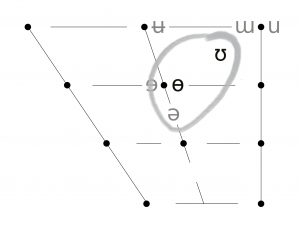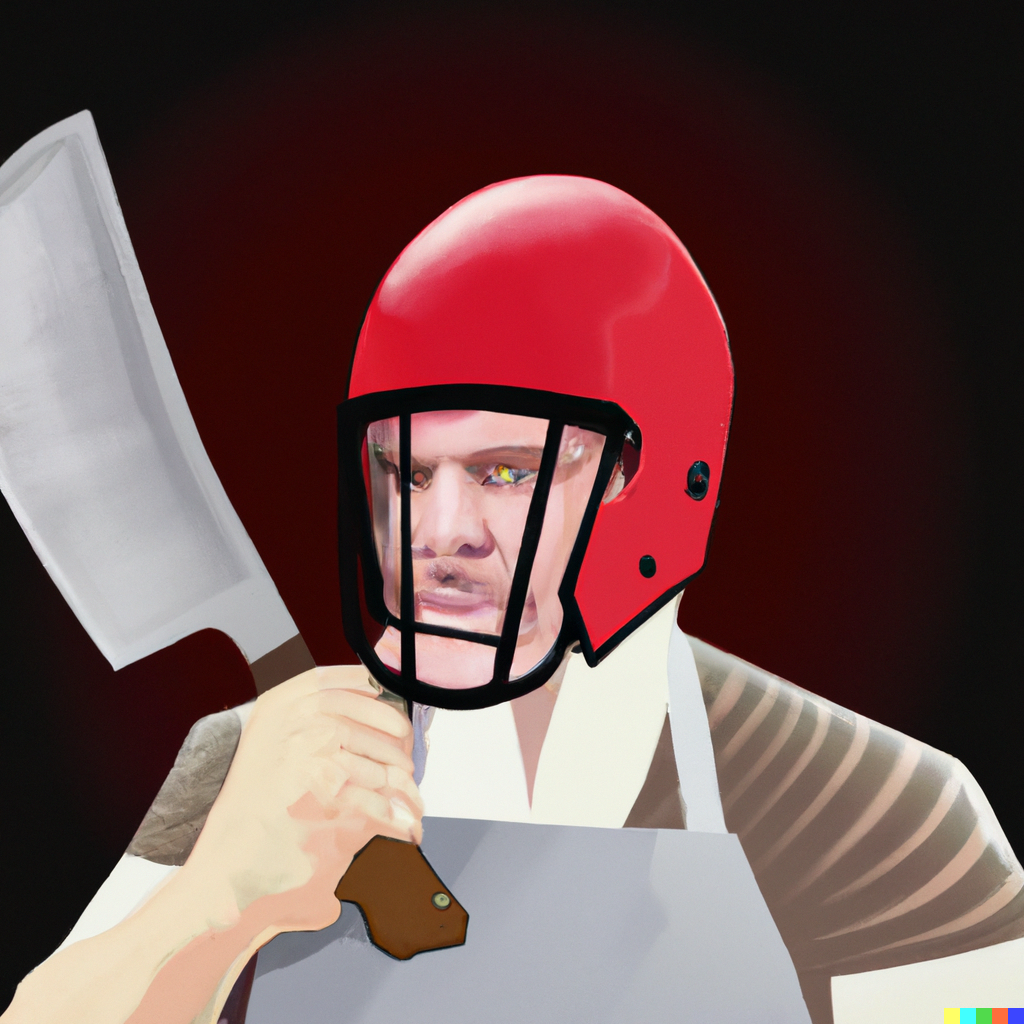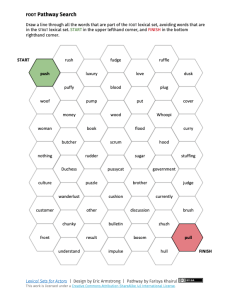6 The FOOT Lexical Set
 The foot lexical set is part of the group of sets that can only be in Checked syllables. Also, foot is found in both stressed or unstressed syllables. Historically, foot evolved from the short /u/ vowel, while goose evolved from the long /u/. In most varieties of English today, foot is more mid-central than goose, on a line in the vowel space between where goose lies, and schwa, /ə/. It can have some degree of rounding, though there are many accents that have very little, or none at all.
The foot lexical set is part of the group of sets that can only be in Checked syllables. Also, foot is found in both stressed or unstressed syllables. Historically, foot evolved from the short /u/ vowel, while goose evolved from the long /u/. In most varieties of English today, foot is more mid-central than goose, on a line in the vowel space between where goose lies, and schwa, /ə/. It can have some degree of rounding, though there are many accents that have very little, or none at all.
- ☑️ Checked: requires a following consonant, and cannot exist on its own
- in both stressed and unstressed syllables
Spellings
uC, ooC, oC, ouC
There are only a small number of words with this vowel in a stressed syllable. However, many of them are high frequency words, so it’s a relatively common vowel in spoken English.
The foot vowel can also be heard in unstressed syllables, frequently in compound words with endings such as -book, -wood, -look, -hood, -brook(e), -put, or prefixes with ful- or full-. In many varieties of English, these unstressed versions of the foot vowel are further reduced to schwa [ə], especially in less emphatic, conversational usage.
Facebook, Hollywood, outlook, neighborhood, Holbrook, output, fulfil, full-time
Parallel to the so-called “liquid U” version of the goose vowel (aka goose Ⓑ), [ju], there is a similar “liquid foot” vowel which is in some accents is pronounced as [jʊ], though many accents today, including the contemporary version of RP, have the even more reduced syllable with schwa, [jə]. We’ll call it foot Ⓑ, though Wells certainly didn’t use that term; his usage only applied to stressed syllables. Note that it is always spelled with ‹u›.
popular, January, February, particular, population, regular, executive, spectacular, manufacturer, reputation, occupation, regulation, calculated, formula, documentary, fabulous, deputy, valuable, ridiculous, document, speculation, simulator, peninsula, contributor, accuracy, formulary, monuments, arguments, ambulance, curriculum, molecular, reputable, calculator
Pronunciations
The foot lexical set is pronounced with some variation of the [ʊ] vowel in the vast majority of mainstream accents of English. The quality of the foot vowel can vary quite a lot, in its degree of rounding, and its degree of closeness and/or backness. As foot evolved from the short goose vowel, the two are linked in many accents. In many accents, when goose is in the backest, most close position of an accent’s vowel space around [u], foot falls between schwa [ə] and goose, somewhere on the diagonal between the two. With more of a goose influence, the vowel will be more in the range of [ʊ̹̠]; with more of a schwa influence, it will be more in the range of [ə̹ ~ ʊ̜̽]. In other cases, when goose is more central with a pronunciation such as [ʉ ~ ə̯ʉ], foot can be more mid-centralized, in the range of [ɵ], though it doesn’t have to be (e.g. in parts of Australia, where goose is quite fronted, foot can be still quite a backed vowel. While goose may have an onglide, foot may not.
Some accents in the north of England have an allophone of foot before /-k/, which merges those specific words with goose [u], as in cookbook, look, rook, nook. An excellent example of the word book with a quite rounded and backed version of [ʊ] can be heard in the “book scene” with Antony Hopkins and Emma Thompson in The Remains of the Day⧉ (1993).
foot can have an offglide [ʊ̜ə̯ ~ u̜̽ə̯], as is heard in some Southern US and African American varieties.
Scottish and Ulster Englishes have no foot set at all, as they have a goose–foot merger, [ʉ ~ y].
Many second-language (L2) speakers of English lack an [ʊ] vowel in their first-language (L1) vowel system; in almost all of these cases, the tendency is to substitute their [u], which is often higher/more close than an English goose vowel. L2 speakers may use alternate spelling pronunciations for words with spellings other than ‹u›, especially in languages where spelling and pronunciation are more directly linked than in English.
Personal Pronunciation
How do you say foot words? Play around with them on your own or with a classmate, friend, coach or teacher to identify how your foot vowel compares with the way(s) they say it. In order to hear its quality a bit better, try lengthening the sound of your foot vowel, and then attempt to subtly shift it around in the vowel space—up, forwards, down, and back—in tiny, subtle shifts. You should feel the top surface of the back your tongue moving towards/away from the roof of your mouth, in the direction of your uvula. What’s the smallest noticeable change that you can make?
If your foot vowel is
- high, use the raised diacritic [ ʊ̝ ], a small T pointing up
- open, use the lowered diacritic [ ʊ̞ ], a small T pointing down
- pushed forward, use the advanced diacritic [ ʊ̟ ], a tiny plus sign +
- pulled back, use the retracted diacritic [ ʊ̠ ], a tiny minus sign –
- moved toward the middle of the mouth, towards schwa [ə], use the mid-centralized diacritic [ ʊ̽ ], a tiny x-marks-the-spot above the symbol,
- if you have some to lots of lip-rounding, use the more rounded diacritic [ ə̹ ], a tiny ɔ, which represents the lips rounding forward (to the left).
- if you have little or no lip̤̤-rounding, use the less rounded diacritic [ʊ̜], a tiny c, which represents the lips relaxing back towards a spread shape (to the right)
Alternate Pronunciations
Experiment with the Word Lists, Phrases and Sentences with the following vowels:
As you move the vowels in the directions recommended, see whether that modified oral posture might inspire you to move the articulation of consonants and other vowels in the word in similar ways. Does it remind you of another accent?
Word Lists for foot, sorted by the consonant that follows
KEY: ◾︎ foot in stressed syllable ◽︎ foot in unstressed syllable
PLOSIVES
-p
-b
-t
-d
-k
-ɡ
AFFRICATES
-tʃ
-dʒ
NASALS
-m
-n
-ŋ
FRICATIVES
-θ
-ð
-f
-v
-s
-z
-ʃ
-ʒ
Vowels followed by /r/ and /l/ often are affected by the following consonant. Though, when followed by ‹r›, foot can become a centring diphthong [ʊə̯] or [ʊɚ̯], though it doesn’t always. Try the words below with a clean foot vowel, with no offglide to schwa (or r-coloured schwa.) When followed by ‹l›, the vowel is often pulled back, especially if /l/ is articulated with the dark-l [ɫ], which may move the vowel more towards schwa [ə]. In some accents, a very dark-l can lead to the vowel being “swallowed” by the /ɫ/, making it syllabic [ɫ̩].
 In order to practice these vowels without the following consonant affecting them, experiment with the “Consonant Chop” technique. Speak the word without the following consonant and all that comes after it, chopping the word off right after the foot vowel. For example, for courier, you would start by saying “cou-“ then, as two units, say “cou- -rier”. If you’re working on using the [ʊ] vowel, that would be something like [kʊ — ɹɪɚ]. Then try putting the two syllables closer and closer together, [kʊ – ɹɪɚ̯, ku-ɹɪɚ̯, ˈkʊ.ɹɪɚ̯, ˈkʊɹɪɚ̯]. You can also try a different vowel, say [u], and change the /r/ to a tap [ɾ] [ku – ɾiəɾ, ku-ɾiəɾ, ˈku.ɾiəɾ, ˈkuɾiəɾ]. If you have success with that more extreme oral gesture, then you can attempt the [ʊ.ɹ] version after.
In order to practice these vowels without the following consonant affecting them, experiment with the “Consonant Chop” technique. Speak the word without the following consonant and all that comes after it, chopping the word off right after the foot vowel. For example, for courier, you would start by saying “cou-“ then, as two units, say “cou- -rier”. If you’re working on using the [ʊ] vowel, that would be something like [kʊ — ɹɪɚ]. Then try putting the two syllables closer and closer together, [kʊ – ɹɪɚ̯, ku-ɹɪɚ̯, ˈkʊ.ɹɪɚ̯, ˈkʊɹɪɚ̯]. You can also try a different vowel, say [u], and change the /r/ to a tap [ɾ] [ku – ɾiəɾ, ku-ɾiəɾ, ˈku.ɾiəɾ, ˈkuɾiəɾ]. If you have success with that more extreme oral gesture, then you can attempt the [ʊ.ɹ] version after.
-ɹ*(see nurse)
-l/ɫ
Words for so-called foot Ⓑ, sorted by the consonant that follows
These words can feature yod+foot in unstressed syllables; in many accents, this vowel is further reduced to yod + schwa, [jə] or you + upsilon, [jʊ].
-p
-b
-t
-d
-k
-ɡ
-n
-m
-f
-s
-z
-l
-ɹ
Short Phrases
- The good cookbook.
- By hook or by crook.
- Don’t look a bull in the eye
- A Push-me-Pull-you
- Your woolen pull-over
- He took the Sugar cookies.
- The bully took my hoodie
- Woody bullied Buzz
- The butcher loves football
- A bushel of goodies.
- The Bollywood actor booked a job in Hollywood
- There’s no oomph to this hummus.
- Gunther* took his MacBook to the Guggenheim.
- She caught chikungunya in Burundi.
- I couldn’t tell if Edvard Munch’s The Scream was good.

Sentences
Level 1
Short with 2-3 words, underlined
- Should Clint Eastwood have played Robin Hood?
- You shouldn’t have too many goodies.
- Look me up if you visit Brooklyn.
- Their horse Gustav hurt his foot in the brook.
- Janet Suzman starred in “The Good Woman of Setzuan.”
Level 2
Short with 4-5 words, underlined
- Sigmund Freud and Carl Jung studied kung fu and jiujitsu
- Shush! I’m reading Atwood’s book, The Edible Woman.
- I could get hooked on movies like Wonder Woman, couldn’t you?
- Put Zen Mind, Beginner’s Mind on the “Good Books about Buddhism” list.
- They should’ve used a pulley to pull the bales of raw wool up there.
Level 3
Medium with 3-4 words, not underlined
- Wolverine shot the werewolf with a silver bullet.
- I would say that Hyundai* and Samsung* are huge Korean manufacturers.
- The valuable wool was from Worcestershire.
- The third consecutive documentary about immunology wasn’t popular.
- A sooty candle burnt part of the spectacular wooden pulpit .
Level 4
Hard with 4-6 words, not underlined
- We never understood the inaccurate counting of the full inauguration crowd.
- Hussein moved from Istanbul to Qom*, which is home to mostly Shi’ite Muslims*, not Sunnis*.
- Put my Bushnell binoculars on the cushion, if you could.
- Schultz zhuzhed his hair in the full-length mirror at the acupuncturist’s.
- The argument was ammunition for an accusation of being a calculating womanizer.
Mergers
The goose-foot Merger is commonplace in Scottish English, and in Ulster varieties of Irish English, where the quality of the vowel is in the range of [ʉ ~ y]. Singapore and Malaysian English also have the merger, but the quality of the vowel is more in the range of [u]. Examples of goose-foot minimal pairs/homophones include: pool/pull, suit/soot, Luke/look, fool/full, who’d/hood, kooky/cookie, shooed/should, wooed/wood. If you have this merger, then try to differentiate the goose and foot words in this sentence. Experiment with goose/foot pairs such as: [ʊ̯u̟/ʊ̽, ʉ/ɵ, y/ʊ̜, u̠̹/ɘ̹, ə̯u/ʊ̹ ]
- The pirate took the filthy lucre from the onlookers and hid it in his toque.
- Should we have played boules while they shooed the bull away?
- If Luke looked at Leia full on in the woods, he wouldn’t have wooed her, like a fool.
- I saw a documentary about Brunei, where I learned about their traditional foods and some facts about their small population.
- Before every football tournament, I always include foot care into my routine before I put on my boots.
- “Welcome to the neighbourhood!” I said, as I dropped off cookies for the new dude that moved in.
The Full–Fool Merger similarly merges foot and goose, using the [ʊ] vowel for both before the dark-L [ɫ], found in Pennsylvania around Pittsburgh, and in some Midland areas of the US, the part sandwiched between the accents of the North and the South It is also reported in some Western areas as well. Accents with L-vocalization, where the dark-L becomes a vowel [u ~ o], can also have a similar Full-Fool merger, as heard in Cockney, Estuary, or New Zealand Englishes in words like fool. However, when a syllable beginning with a vowel is added, causing the /l/ to revert to a consonant (as in fooling), the Merge disappears.
The mule, who’ll drool by the stool, will pull the tool near the school’s pool.
Splits
The foot–strut Split began to happen in English in the 17th century after the Great Vowel Shift merged /o/ and /u/ into long and short /u/. Over time, words gradually shifted—after many adjustments—to /ʊ/ and /ʌ/. The split separated words like could/cud, put/putt, book/buck, took/tuck, oops/ups, Jung/young, puss/pus, look/luck*, cook/cuck*, shook/shuck*. However, in many accents, especially in the North of England, this split didn’t happen, and so these words resolved themselves as the foot vowel.
*Note that some Northern English accents have foot + /k/ merged with goose, so though the strut word will have [ʊ], the foot word will be [u].
If foot and strut are split in your accent, try saying the pairs of words above with [ʊ]. If they are still merged in your accent, try to differentiate the words in the list above and in the sentence below, and explore foot/strut with the following possible pairs; [ʊ/ʌ, ʊ̜/ɐ, ɵ̜/ʌ̠, u̠/a, ʊə]
What luck: it looks like the book only cost young Dr. Jung five bucks.
Oops-a-daisy! After my putt, I took up the ball and put it away, and tucked it in my pocket.
Review
Pathway Puzzles
 Pathway Puzzles allow you to practice finding members of a lexical set. Choose the next cell with the FIRST lexical set word to make a pathway from the START of the puzzle down to the FINISH. Open the KEY document to see the solution, and check your work. Pathway Puzzles were created by Farisya Khairul, through support from a AMPD Minor Research Grant.
Pathway Puzzles allow you to practice finding members of a lexical set. Choose the next cell with the FIRST lexical set word to make a pathway from the START of the puzzle down to the FINISH. Open the KEY document to see the solution, and check your work. Pathway Puzzles were created by Farisya Khairul, through support from a AMPD Minor Research Grant.
A phonetically distinct variant of a phoneme, used in different circumstances. For example, in the speech of many Canadians, the vowel of "lout" is a distinct allophone [əʊ] when compared to the vowel [aʊ] in "loud," both of which are from the MOUTH lexical set, with the phoneme /aʊ/. "Allophonic" (adj.) refers to this kind of variation.
A pronunciation based on the spelling of the word rather than its traditional pronunciation. For L2 speakers, this may be associated with the spelling/pronunciation traditions of their L1 language.
A vowel that changes state, with a nucleus that begins on the periphery of the vowel space and moves toward a coda that is in the middle of the mouth, usually schwa /ə/. Here, we mean the sets NEAR, SQUARE, START, NORTH, FORCE, and CURE, whether they are rhotic or not. (US spelling: centering diphthong. )

